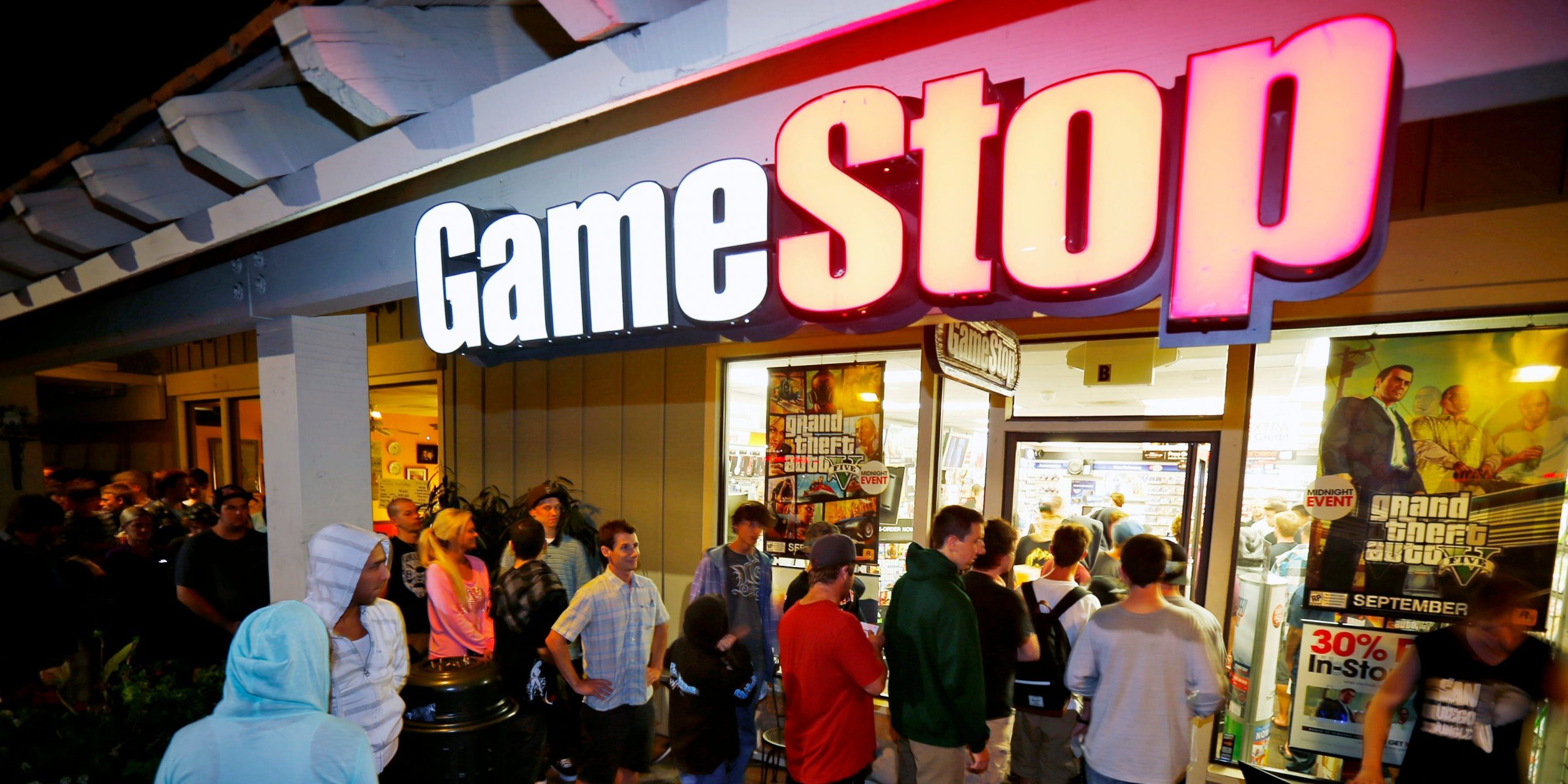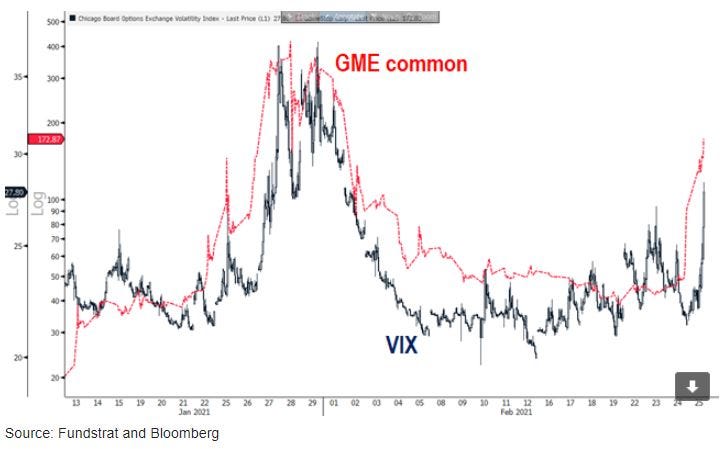
- This week’s 355% surge in GameStop could be upending the entire stock market, according to Fundstrat’s Tom Lee.
- Stocks sold off broadly on Thursday, with major averages like the S&P 500 and Nasdaq 100 down more than 2% at intraday lows.
- “It’s not surprising to see GameStop create another wave of panic and post-traumatic de-gross, Lee said.
- Sign up here for our daily newsletter, 10 Things Before the Opening Bell.
This week’s stock market sell-off could in part be due to the recent surge in shares of GameStop, Fundstrat’s Tom Lee said in a note on Thursday.
Shares of GameStop surged as much as 355% this week, returning to levels not seen since the epic short-squeeze in late January. The rally started Wednesday afternoon, potentially sparked by the abrupt resignation of GameStop’s CFO, Jim Bell. Sources told Insider that Bell was forced out by the board as part of a push by activist investor Ryan Cohen.
As shares of GameStop soared, the broader stock market averages sold off, with the S&P 500 and Nasdaq 100 down more than 2% on Thursday.
And while many investors are attributing the broad market decline to rising interest rates, with the 10-year US Treasury note moving above 1.5% on Thursday, Lee thinks it could actually be caused by a de-grossing event in which hedge funds are unwinding their leverage by selling stocks.
Lee observed that the Cboe Volatility Index – or VIX, frequently called the stock market’s fear gauge – has closely followed the price of GameStop shares since mid January, “when GameStop went mental,” according to the note.
Lee explained that GameStop could still be a popular short among hedge funds, and a surging price in the video game retailer's share price means quant funds require short-covering.
"Going long the VIX is not a bad proxy, and a rising VIX causes value-at-risk models to require hedge funds to de-gross, or reduce leverage," Lee said.
The GameStop surge could lead to a surge in the VIX, which could then result in hedge funds de-grossing their portfolios, leading to stocks falling, the note said.
"It is not surprising to see GameStop create another wave of panic and post-traumatic de-gross," Lee said.
He added: "This is merely an observation and may not be the actual mechanism."
But since economic momentum is strengthening, volatility surges represent "temporary equity headwinds," according to Lee. Instead of signalling new lows ahead, Lee views the spike in market volatility as a "rotational" event based on cautious (not ebullient) client conversations and improving economic visibility, the note said.
